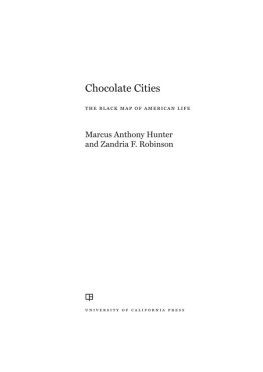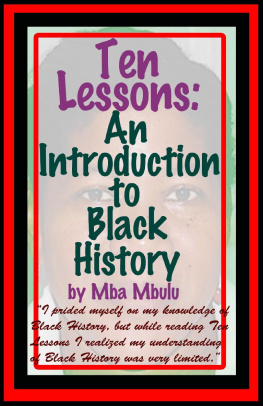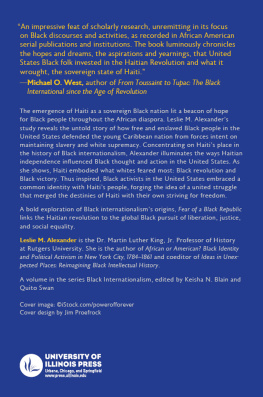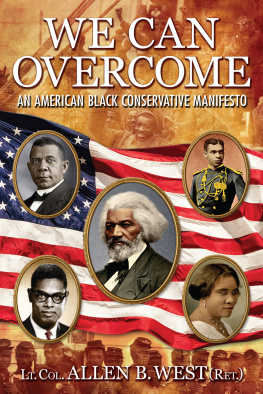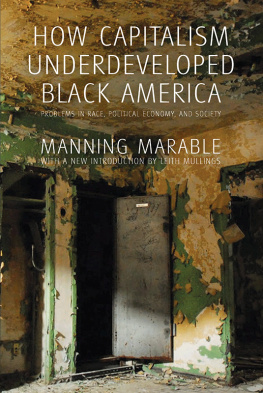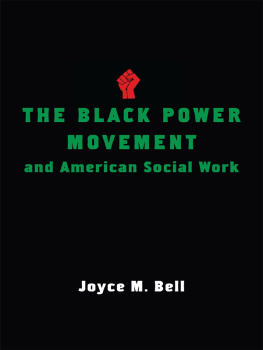Chocolate Cities

THE GEORGE GUND FOUNDATION
IMPRINT IN AFRICAN AMERICAN STUDIES
The George Gund Foundation has endowed
this imprint to advance understanding of
the history, culture, and current issues
of African Americans.
The publisher and the University of California Press Foundation gratefully acknowledge the generous support of the George Gund Foundation Imprint in African American Studies.

Hunter and Robinson offer an iteration of black thought that explores how black lifeas song and tune, as fight and struggleis necessarily geographic life. Here, threads of black geographies emerge across and underneath prevailing cartographieswithin the United States while also reaching out to touch other global diasporic sitesto show that the black imagination is tied to place-making practices. Powerfully, the authors write black geographies and chocolate cities as living geographiessites shaped by brutal and unforgiving racial economies that engender creative praxis and freedom struggle.
Katherine McKittrick, author of Demonic Grounds: Black Women and the Cartographies of Struggle
Rarely does a book disrupt existing paradigms and displace dominant narratives. This is exactly what Hunter and Robinson achieve in Chocolate Cities . This book changes the ways we understand Black and White Americans in profound ways, especially how they experience and define themselves according to geographic regions throughout the United States. This book creatively weaves together data from rich and untapped sources to tell a unique American story. A must-read for all who wish to rethink current racial dynamics in America and unravel them in fresh new ways.
Aldon Morris, author of The Scholar Denied: W. E. B. Du Bois and the Birth of Modern Sociology
A significant, timely, and provocative race-based social mapping of the United States, reflecting a sense of the everyday lives of African Americans. These masterful sketches, rooted in oral history and illuminated by poetry, music, fiction, and film, make it an extraordinary book that needs to be read and considered far beyond the academy.
Elijah Anderson, Yale University, author of The Cosmopolitan Canopy and The White Space
Chocolate Cities is bold on too many levels to name. It rethinks our standard notions of geography, data, history, academic discipline, and theory. It sings and dances off the page. Chocolate Cities kicks up enough funk to provoke a major paradigm shift in research on Black places.
Mary Pattillo, author of Black on the Block: The Politics of Race and Class in the City
In one of the most original treatments of the urban that Ive read in decades, Hunter and Robinson overturn the dominant social-science imaginary that see inner cities only in crisis, chaos, and decline. Theirs is a sociological imagination constructed from the eyes, ears, hearts, memories, songs, and prayers of real city folk, those Black communities who cling to their village, continually remake their culture, and build power to beat back the chaos imposed on them. This is what it means to live in a Chocolate City. Chocolate, after all, is more than a color.
Robin D. G. Kelley, author of Freedom Dreams: The Black Radical Imagination
Modeling the very best of collaborative research and writing, Chocolate Cities is a brilliant, creative, and innovative work. The authors engage the rich literary and musical heritage that black city dwellers have bequeathed the world while building upon and extending the best social science and humanities scholarship. Hunter and Robinson offer us a beautifully written work that is sure to become an influential classic in the fields of Sociology, American Studies, African American Studies, and beyond.
Farah Jasmine Griffin, Director, African American Studies, Columbia University
Chocolate Cities is simply the most instructive and illuminating book on American geography and culture that I have ever read. Hunter and Robinson pull no punches and sacrifice no nuance in countering traditional hegemonic notions of race, space, and movement with loving, textured Black American notions of race, space, and movement. Chocolate Cities is a critical occasion to rethink everything we thought we knew about American space and spatial liberation.
Kiese Laymon, author of Long Division
Chocolate Cities
THE BLACK MAP OF AMERICAN LIFE
Marcus Anthony Hunter and Zandria F. Robinson

UNIVERSITY OF CALIFORNIA PRESS
University of California Press, one of the most distinguished university presses in the United States, enriches lives around the world by advancing scholarship in the humanities, social sciences, and natural sciences. Its activities are supported by the UC Press Foundation and by philanthropic contributions from individuals and institutions. For more information, visit www.ucpress.edu.
University of California Press
Oakland, California
2018 by Zandria F. Robinson and Marcus Hunter
Library of Congress Cataloging-in-Publication Data
Names: Hunter, Marcus Anthony, author. | Robinson, Zandria F., author.
Title: Chocolate cities : the black map of American life / Marcus Anthony Hunter and Zandria F. Robinson.
Description: Oakland, California : University of California Press, [2018] | Includes bibliographical references and index.
Identifiers: LCCN 2017028630 (print) | LCCN 2017033913 (ebook) | ISBN 978-0-520-96617-8 (ebook) | ISBN 978-0-520-29282-6 (cloth : alk. paper) | ISBN 978-0-520-29283-3 (pbk. : alk. paper)
Subjects: LCSH : African AmericansHistory.
Classification: LCC E 185 (ebook) | LCC E 185 . H 86 2018 (print) | DDC 973/.0496073dc23
LC record available at http://lccn.loc.gov/2017028630
Manufactured in the United States of America
26 25 24 23 22 21 20 19 18
10 9 8 7 6 5 4 3 2 1
For Black people here, there, and everywhere
Contents
Preface
We didnt get our forty acres and a mule, but we got you C[hocolate] C[ity], George Clinton declares victoriously on the title track of Parliament Funkadelics 1975 Chocolate City album. Rather than wait for unfulfilled political promises, Black Americans were occupying urban and previously White space in massive numbers, their movement and increasing political power embodied on the track by multiple yet complementary melodies. Bass and piano take turns keeping the beat and beginning new melodies, saxophones speak, a synthesizer marks a new era, and a steady high hat ensures the funk stays in rhythm. The Parliament, its own kind of funky democratic government, chants gainin on ya! as Clinton announces the cities that Black Americans have turned or will soon turn into CCs: Newark, Gary, Los Angeles, Atlanta, and New York. Parliaments Mothership Connection public-service announcement is broadcast live from the capitol, in the capital of chocolate cities, Washington, DC, where they still call it the White House, but thats a temporary condition.
Spurred on by postwar suburbanization, by 1975 the chocolate city and its concomitant vanilla suburbs were a familiar racialized organization of space and place. The triumphant takeover tenor of Chocolate City may seem paradoxical in retrospect, as Black people inherited neglected space, were systematically denied resources afforded to Whites, and were entering an era of mass incarceration. Still, for Parliament, like for many other Black Americans, chocolate cities were a form of reparations and were and had been an opportunity to make something out of nothing. For generations these chocolate citiesBlack neighborhoods, places on the other side of the tracks, the bottomshad been the primary locations of the freedom struggle, the sights and sounds of Black art and Black oppression, and the container for the combined ingredients of pain, play, pleasure, and protest that comprise the Black experience.

